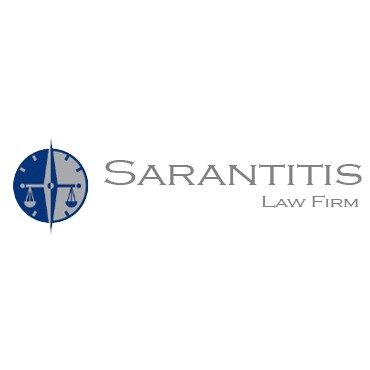Best Hiring & Firing Lawyers in Athens
Share your needs with us, get contacted by law firms.
Free. Takes 2 min.
List of the best lawyers in Athens, Greece
About Hiring & Firing Law in Athens, Greece
Hiring & Firing law in Athens, Greece refers to the legal framework governing the employment relationship between employers and employees. These laws outline the rights and responsibilities of both parties during the hiring and termination processes. It is crucial for both employers and employees to understand these laws to ensure compliance and protect their rights.
Why You May Need a Lawyer
There are several situations where you may need the assistance of a lawyer in matters related to Hiring & Firing in Athens, Greece:
- Disputes over employment contracts
- Wrongful termination claims
- Discrimination or harassment allegations
- Negotiating severance packages
- Understanding your rights and obligations as an employer or employee
Local Laws Overview
In Athens, Greece, some key aspects of local laws relevant to Hiring & Firing include:
- Greece follows a mandatory retrenchment procedure. Employers need to provide a valid reason for the termination and follow a specific process.
- Discrimination, based on race, gender, religion, or disability, is strictly prohibited.
- The maximum working hours, overtime pay, and annual leave entitlements are regulated by law.
- Employers are required to provide written employment contracts outlining terms and conditions of employment.
- Employees have the right to join trade unions and engage in collective bargaining.
Frequently Asked Questions
1. Can an employer terminate an employee without a valid reason?
No, employers in Athens, Greece cannot terminate an employee without a valid reason. They must provide a legitimate cause for termination, such as poor performance, misconduct, or redundancy. Failure to follow the proper procedure may result in legal consequences for the employer.
2. What should I do if I believe I have been wrongfully terminated?
If you believe you have been wrongfully terminated, you can seek legal advice from an employment lawyer. They can assess your situation, review your employment contract, and guide you on the appropriate course of action, which may include filing a complaint or pursuing a legal claim.
3. How long is the notice period for terminating an employment contract?
The length of the notice period depends on various factors, such as the duration of employment and the terms outlined in the employment contract. Typically, the notice period ranges from one to three months. If the employment contract does not specify the notice period, legal provisions apply.
4. Can an employer refuse to pay severance pay?
No, an employer cannot refuse to pay severance pay if an employee is entitled to it. Severance pay is usually provided when an employment contract is terminated due to certain reasons, such as redundancy or permanent incapacity. If an employer refuses to pay severance, legal action can be taken to enforce the entitlement.
5. Where can I find information about minimum wage in Athens, Greece?
Information about the current minimum wage in Athens, Greece can be obtained from the Ministry of Labour, Social Security, and Social Solidarity website. They regularly update the minimum wage rates, taking into account various factors such as inflation and economic conditions. It is advisable to consult the official sources for accurate and up-to-date information.
Additional Resources
If you are in need of legal advice or further information about Hiring & Firing in Athens, Greece, the following resources may be helpful:
- The Athens Bar Association: www.dsa.gr
- The General Confederation of Greek Workers (GSEE): www.gsee.gr
- The Greek Ombudsman: www.synigoros.gr
Next Steps
If you require legal assistance in Hiring & Firing in Athens, Greece, consider taking the following steps:
- Identify your specific legal concern or issue related to Hiring & Firing.
- Research and gather relevant documentation, such as employment contracts and communication records.
- Contact an experienced employment lawyer specializing in Hiring & Firing cases.
- Schedule a consultation to discuss your case, provide necessary information, and seek legal advice.
- Follow the guidance provided by your lawyer to address your concern effectively.
Lawzana helps you find the best lawyers and law firms in Athens through a curated and pre-screened list of qualified legal professionals. Our platform offers rankings and detailed profiles of attorneys and law firms, allowing you to compare based on practice areas, including Hiring & Firing, experience, and client feedback.
Each profile includes a description of the firm's areas of practice, client reviews, team members and partners, year of establishment, spoken languages, office locations, contact information, social media presence, and any published articles or resources. Most firms on our platform speak English and are experienced in both local and international legal matters.
Get a quote from top-rated law firms in Athens, Greece — quickly, securely, and without unnecessary hassle.
Disclaimer:
The information provided on this page is for general informational purposes only and does not constitute legal advice. While we strive to ensure the accuracy and relevance of the content, legal information may change over time, and interpretations of the law can vary. You should always consult with a qualified legal professional for advice specific to your situation.
We disclaim all liability for actions taken or not taken based on the content of this page. If you believe any information is incorrect or outdated, please contact us, and we will review and update it where appropriate.

















